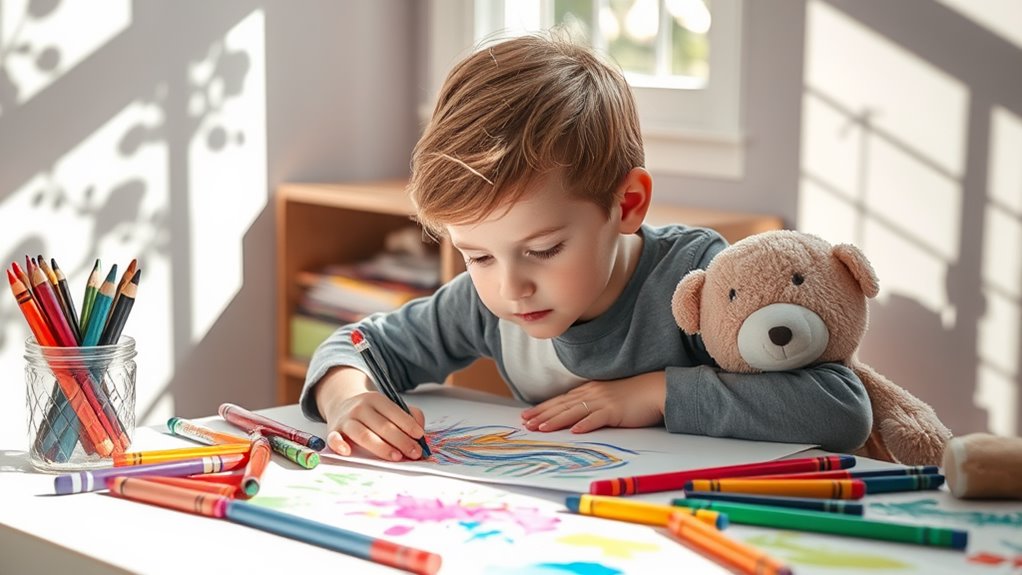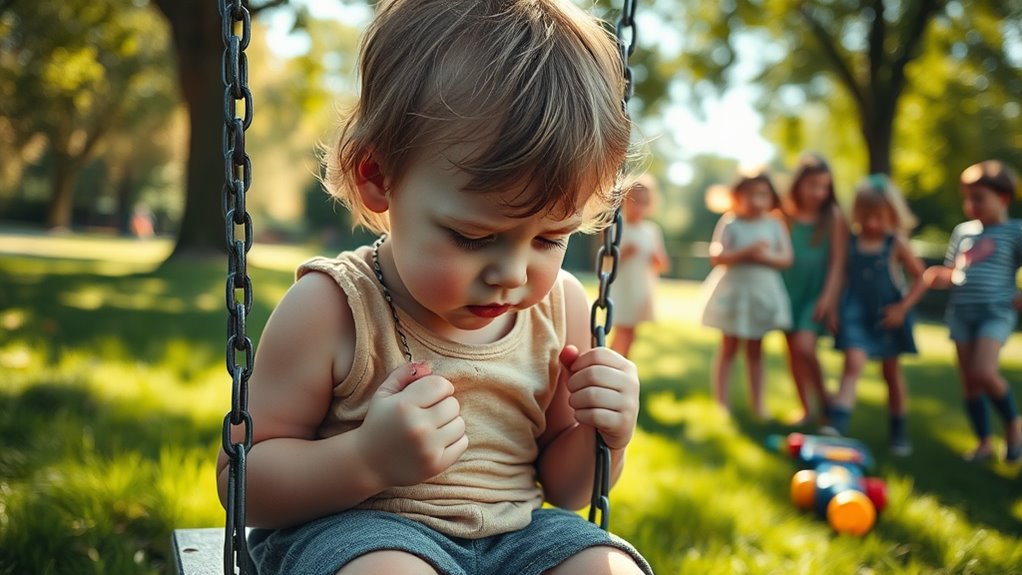Understanding the Impact of Praise on Child Development
When you consider how praise shapes a child’s development, you might realize its profound influence on self-esteem, motivation, and social skills. You may find that the way you acknowledge your child’s efforts can either build resilience or inadvertently lead to a sense of entitlement. It’s not just about celebrating achievements; it’s about fostering a mindset that embraces challenges. Yet, understanding the nuances of effective praise can be tricky. What specific techniques can truly support their growth while avoiding common pitfalls? The answers might surprise you.
The Role of Praise in Development
Praise plays an essential role in child development, influencing self-esteem, motivation, and learning. When you celebrate your child’s achievements, whether big or small, it boosts their confidence and encourages them to keep trying. Imagine your child scoring a goal in soccer or finishing a challenging puzzle. Your enthusiastic cheers make them feel like a superstar!
But it’s not just about the big wins. Praise for effort, like trying hard on a homework assignment, helps kids understand that hard work matters too. It teaches them that making mistakes is okay, as long as they keep pushing forward. When you acknowledge their efforts, you’re planting seeds of resilience, and that’s a fantastic life skill.
Now, you might wonder how to praise effectively. Instead of just saying, “Good job,” try to be specific. Say, “I love how you solved that math problem. You really thought it through!” This way, they know exactly what they did right.
Effects on Self-Esteem
When you give genuine praise, you’re not just celebrating an achievement; you’re also nurturing your child’s self-esteem. Think about it—when your child hears you say, “Wow, you did an amazing job on that project!” it lights up their face. That boost of confidence can go a long way. Your words help them feel valued and capable, and that’s the kind of magic every kid needs.
Self-esteem is like a balloon; if you keep filling it with praise, it floats higher and higher. But if you only focus on mistakes, that balloon can deflate quickly. By recognizing their efforts, you’re helping them develop a positive self-image. They start to believe in themselves, and that belief can help them tackle new challenges.
Just remember, praise should be specific, too. Instead of a blanket “good job,” try saying, “I love how you used bright colors in your drawing!” This way, your child knows exactly what they did well.
And let’s face it—who wouldn’t want to hear that they’re awesome? With your encouragement, they’ll grow up ready to take on the world, one compliment at a time!
Influence on Motivation
Genuine praise not only boosts self-esteem but also fuels a child’s motivation to learn and explore. When you recognize your child’s efforts, they feel a spark of excitement. It’s like giving them a little rocket fuel for their ambitions!
Instead of just saying, “Good job,” try specific praise, like, “You worked really hard on that project!” This helps them understand what they did well and encourages them to keep pushing their limits.
When kids feel motivated, they’re more likely to tackle challenges with enthusiasm. Imagine your child facing a tough math problem. If they know you appreciate their effort, they’re likely to immerse themselves in that problem instead of giving up.
Motivation turns struggles into adventures, where every mistake is just a stepping stone to success.
Plus, when praise is genuine, it builds a love for learning that lasts. Kids learn to value effort over just the end result.
Social Skills Enhancement
A healthy dose of specific praise can considerably enhance your child’s social skills. When you acknowledge their efforts in sharing, taking turns, or even helping a friend, you’re giving them a boost. It’s like adding a little fuel to their social rocket! Kids thrive on attention, and when you recognize their positive interactions, it encourages them to repeat those behaviors.
Think about it: when your child hears, “You did a great job helping your friend with that game,” they feel proud and motivated. This praise helps them understand the importance of teamwork and empathy. Plus, it shows them that their actions can make others feel good, too.
As they grow, these small moments build a foundation for strong friendships and effective communication. Your encouragement teaches them how to navigate social situations, whether it’s chatting with a classmate or resolving a conflict.
Effective Praise Techniques
Praise can be a powerful tool in shaping your child’s development, but not all praise is created equal. To really make an impact, you need to use effective praise techniques.
First, be specific. Instead of saying, “Good job!” try, “You did a fantastic job organizing your toys!” This way, your child knows exactly what they did right.
Next, focus on the effort, not just the outcome. Compliment their hard work with something like, “I really admire how hard you practiced that song.” This encourages them to keep trying, even when things get tough.
Don’t forget to use enthusiastic body language! A big smile or a high-five can make your praise feel even more special.
Also, make sure to praise your child regularly, but keep it genuine. Too much praise can feel empty, like eating too much candy—it’s sweet, but not satisfying!
Lastly, mix it up! Use different ways to praise them—stickers, a fun outing, or a simple note can all work wonders.
Common Missteps in Praising
Many parents fall into common pitfalls when it comes to praising their children. One major mistake is giving praise that’s too vague. Saying “Great job!” doesn’t tell your child what they did well. Instead, try being specific. For example, say, “You did an awesome job sharing your toys today!” This helps them understand exactly what behavior you appreciate.
Another misstep is over-praising. If you shower your child with praise for every little thing, they might start to expect it and lose motivation to try harder. It’s like giving a gold star for just showing up! Instead, save your praise for meaningful accomplishments.
You might also want to avoid comparing your child to others. Saying, “Your sister did this better,” can hurt their self-esteem. Instead, focus on their unique strengths.
Lastly, make sure your praise feels genuine. Kids can spot insincerity from a mile away! If you’re excited about their achievement, let it show, but don’t overdo it. A little goes a long way, and your child will feel your support.




